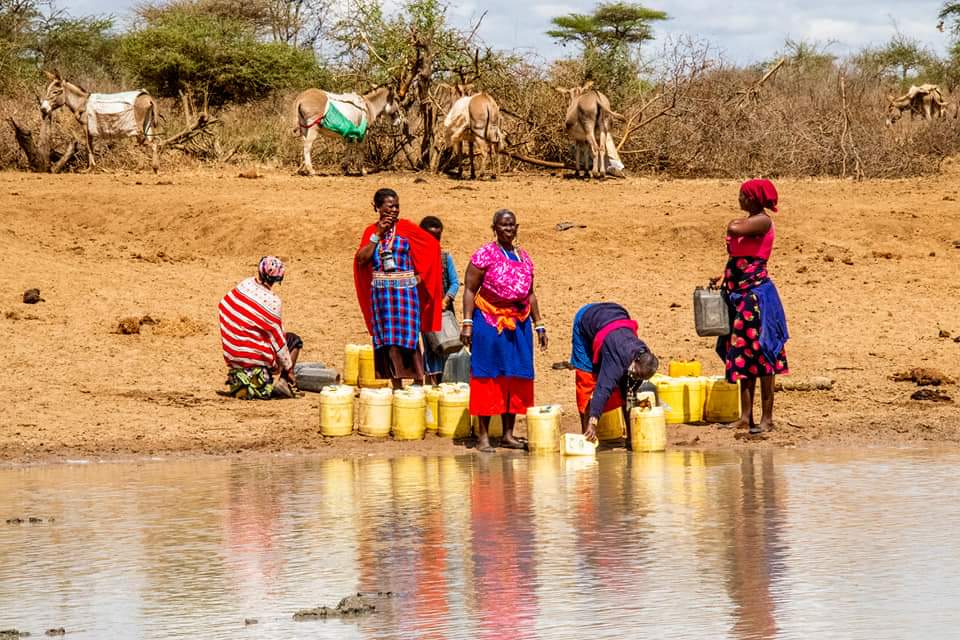Bridging the Gap: The Urgent Need for Grassroots Voices at Global Forums

At the heart of many international gatherings, like COP28, lies an uncomfortable reality. Although these global forums strive to address pressing environmental challenges, they often seem detached from the very realities they aim to combat. More often than not, the crucial voices from grassroots communities are absent, voices that should be integral to the decision-making, policy formation, and allocation of climate finances.
This glaring disparity is aptly demonstrated by organizations like Patinaai Osim, whose work highlights the gap between lofty international agendas and the pressing realities on the ground. Patinaai, an organization based in Kenya active since 2019, works tirelessly in four primary areas: education, environmental conservation, gender empowerment, and sustainable livelihood. As Patinaai aptly puts it, “There’s a need for spaces like COP28 to recognize our work at the grassroot level and the challenges we face. We want our voices to be heard.”
While these areas form the crux of many discussions at international forums, a closer look reveals a more intricate, intertwined story on the ground. Patinaai’s endeavors are marked by a deep understanding of local dynamics. Initiatives like their focus on rural primary education, particularly for girls, aren’t mere educational drives but a stance against teen pregnancies, as they fuse comprehensive sexuality education with health and hygiene programs. Their tree-planting campaigns go beyond greenery, emphasizing the challenges of rampant deforestation and land degradation, impacting not just the environment but the very livelihoods dependent on it.

A crucial link in their work intertwines gender and environmental initiatives. Maasai women, often at the frontline of climate change impacts, confront multifaceted challenges, from deforestation-triggered land-rights issues to patriarchal norms that deny them their rightful resources. “Our women face many challenges. The environment is degraded, and they have to walk miles to fetch water. They don’t have access to many resources because of their gender,” shared Patinaai. “We are advocating for the county government to adopt policies that adequately represent women’s interests. Most of these policies are passed by men while it is the women who are affected the most. If it’s water, they are the ones that fetch water. If it’s firewood, they are the ones that fetch wood for it. In my community, it is women that build houses using wood. They have to walk long distances to do this, and yet they are still the ones taking care of the livestock, especially when the children are in school, as well as ensuring the family is also well taken care of. Furthermore, the impact of climate change, such as the unprecedented drought we’ve experienced for the first time in 40 years, disproportionately affects women. Given these responsibilities and challenges, it’s imperative that their perspectives and needs are central to policy-making.”
Yet, this detailed local understanding seems conspicuously absent at platforms like COP28. How can global decisions resonate locally if those shaping them are oblivious to ground realities? Without the grassroots representation, the well-intended policies and funds from such forums risk being misdirected, seldom reaching communities like those Patinaai represents.
Imagine the transformation if these voices were not just heard but acted upon at global stages. When local experiences shape global policies, the resultant change is not just cosmetic but deeply transformative. Patinaai’s local lobbying efforts vividly depict the power of representation. Consider this: In their meetings, Maasai women often highlight the misplaced priorities in water resource allocation. The decisions of the male-dominated Member of County Assembly (MCA), as well as the leadership at all levels, frequently favor livestock over women, who bear the brunt of fetching water from distant sources. As one member stated, “When we have women meetings and tell them about the need for MCA to have water points that are accessible to us too, now they understand why water is far from them. It’s men making those decisions, thinking only of cows and goats.”

COP and similar forums need an urgent paradigm shift, from the ‘elitist boys club’ to platforms emphasizing grassroots representation. The poignant narrative shared by Patinaai’s community showcases the immense potential of what can be achieved when local realities guide global discussions.
Global platforms like COP28 must prioritize these community voices, making them the most influential in decision-making processes. Only then can we hope for a world where global deliberations translate into local solutions and vice versa, ensuring that no voice, no matter how remotely located, goes unheard.
–
The Global Alliance for Green and Gender Action (GAGGA) will be present at COP28 with a delegation between November 30 to December 12, 2023. Join us at our side event “Gender Just Climate Policy & Finance: From Barriers to Actionable Solutions” on Sunday, 3 December, where we delve deep into themes central to this article. For collaboration opportunities and to learn more, please contact Noemi Grütter, GAGGA Co-Coordinator, Advocacy and Collaborations: n.grutter@fondocentroamericano.org. For additional insights around this article and Patinaai Osim’s work and to connect directly, reach out to Semerian Sankori, Founder & Executive Director at Patinaai Osim at semerian@patinaaiosim.org or at info@patinaaiosim.org.
This story and GAGGA’s COP28 actions are supported by Global Affairs Canada and The Dutch Ministry of Foreign Affairs. Their contribution has been instrumental in GAGGA’s efforts to highlight critical issues and voices at COP28.



